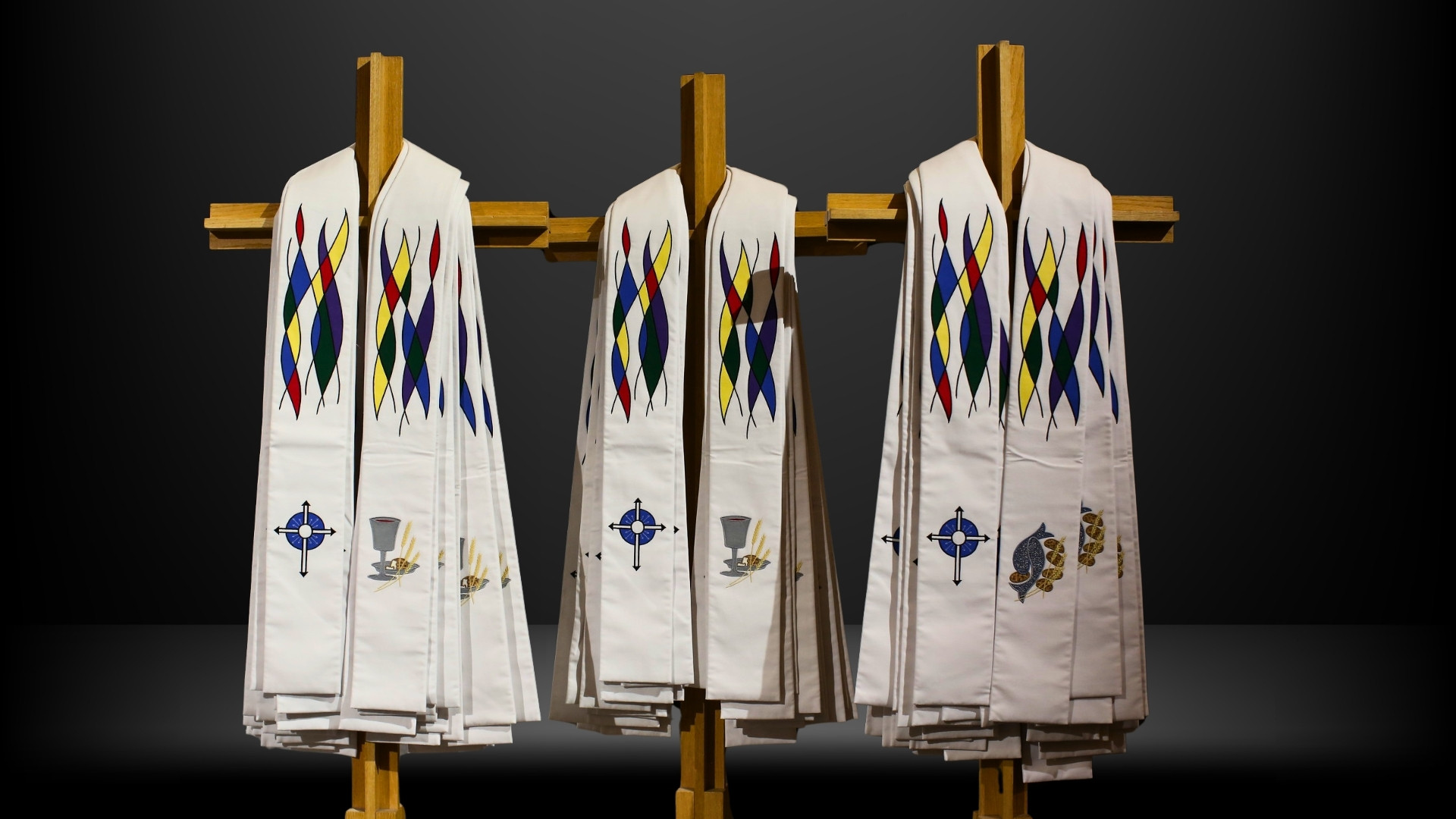Set in the rolling hills of eastern Iowa, Postville seemed like a slice of heaven. The town of 2,400 was surprisingly diverse — by one estimation, as many as twenty-seven different cultures were living and working side by side, including descendants of the region’s first wave of northern European immigrants, Hasidic Jews, Mexican and Guatemalan immigrants, and Somali refugees.
This multiculturalism was due to the arrival in 1987 of Agriprocessors, the world’s largest kosher meat-packing plant. With the Hasidim from New York and Eastern Europe came their burgeoning workforce from around the world. The company brought jobs and a thriving economy to a previously struggling town.
In Decorah, some twenty-five miles away, physical therapists Steve and Lisa Krieg and their business partner, Greg Lane, began to treat plant employees for work related injuries. One patient, Adolfo, realized that Lane was a Christian and asked him to pray for his friend Eduardo. Eventually Eduardo became a Chris-tian, and Steve and Adolfo became friends. It wasn’t long before Adolfo invited the Kriegs to visit his church of Guatemalan immigrants in Postville.
At first, Steve admits thinking that Decorah Covenant Church, where he was a member, could help the immigrants get organized. “I thought I was going to do some ministry to them,” he recalls. Instead, he found that what the group of around 100 really needed was Christian friendship. It was, like many immigrant churches, a mixture of several denominations. They had a bi-vocational pastor and a meeting place in the basement of Community Presbyterian Church. Since Agriprocessors was a kosher processor, the congregation worshiped on Saturdays, everyone’s day off. There was also a Mexican church meeting at St. Paul Lutheran Church and a large Hispanic congregation at St. Bridget Catholic Church.
Decorah Covenant and the Kriegs became more connected to the Guatemalan church. They shared meals and events and spent time together. They learned that Guatemala’s unemployment rate is around 50 percent and that their new friends were sending every extra penny back home to family.
Steve and Lisa later learned that at least some of their friends were living in the United States illegally. Some, like Adolfo, assumed that their status was legal, because they had been supplied Social Security numbers by Agriprocessors management. What they learned later was that those documents had been obtained illegally.
On May 12, 2008, United States Immigration and Customs Enforcement (ICE) entered Agriprocessors and arrested 389 people. At the time it was the largest single raid in U.S. history. St. Bridget’s Father Paul Ouderkirk, noting the 900 ICE agents, assault weapons, dogs, and helicopters, likened it to a military raid. The raid “created a crisis for Postville,” says Dick Nystrom, interim pastor at Decorah Covenant Church, “like a tornado.” The detainees were taken to the National Cattle Congress in Waterloo, Iowa, where they were corralled in makeshift cells, shackled, and herded in groups of ten through makeshift courtrooms. Eventually 302 people were charged with identity theft, Social Security fraud, or illegal entry into the United States.
The entire community was thrown into confusion. Frightened family members and workers who had not been swept up in the raid sought sanctuary in St. Bridget’s Church, where they stayed for six days, afraid to go home. The church housed them and fed them. At the end of the week the people of St. Bridget’s encouraged the families to return home and began looking for ways to continue to pro-vide them with food, clothing, and legal aid.
Forty-three women were detained in Postville without legal status or means of support. Their electronic monitoring anklets prompted some to describe the town as an open-air prison. Their American-born children were afraid to go to school or play outside. In January, twenty-eight women still remained in Postville with uncertain status.
In early summer, Steve and Lisa received a phone call from some Guatemalan friends who still remained in the area. They had heard rumors of another raid and were hesitant to stay in Postville, fearing arrest. The Kriegs opened their basement, inviting their friends to take refuge there. After about ten days, the anticipated raid had not occurred, and their guests left, some returning home to Guatemala.
With a third of its workforce gone, Agriprocessors had to find more employees. New recruits included Somali refugees, unemployed Texans, Nebraskan Native Americans, and Palauans. Located 500 miles east of the Philippines, Palau has an agreement with the United States that allows its citizens to work in the States without a green card. The average wage in the tiny island nation is $2.50 an hour, and the temporary workers were drawn by Agriprocessors’ hourly wage of $9. In addition, Agriprocessors had promised to withdraw rent payment from some workers’ paychecks, in effect ensuring that their housing expenses would be paid.
But Agriprocessors was sued for defaulting on a $35 million line of credit, and the company filed for Chapter 11 bankruptcy protection in November. Later that month, several Agriprocessors employees, including Sholom Rubashkin, former CEO and son of the company’s founder, were arrested and charged with federal and state crimes, including harboring illegals for profit and aiding and abetting document fraud, aggravated identity fraud, and bank fraud. There were also 9,000 counts of labor violations, which included child labor violations.
As the company failed, workers stopped receiving paychecks, and Agriprocessors stopped paying the workers’ rent and electric bills. As winter was approaching, around twenty-seven unemployed and home- less Palauans were stranded in Postville. As a temporary measure, the Decorah Faith Coalition – a group of local churches – secured lodging in a local skating rink for one night. After that, more suitable accommodations were needed.
The Decorah Faith Coalition was established in 2001, and Mike Blevins, who planted Decorah Covenant, was instrumental in its beginning. One of their first projects was to establish a free clinic, which continues to operate today. The coalition has set aside the politics of immigration as much as possible in order to focus on a humanitarian response.
Decorah Covenant Church, which is a key member of the coalition, opened its newly acquired building, a former bank, as a temporary shelter for the Palauans. Luther College in Decorah donated mattresses, and other churches assembled to help provide meals, transportation, and other assistance. The significance of their future sanctuary space serving as a sanctuary for the Palauans is not lost on the church, says interim Pastor Dick Nystrom. “Brick and mortar became alive when they were there,” he says.
One perk that Agriprocessors used to recruit the temporary workers was to provide them with round trip airfare. Decorah volunteers helped turn the return flight vouchers into tickets, which required additional fees. Volunteers helped raise funds, including $900 from a benefit concert featuring Decorah Covenant’s worship band and Palauan dancers, to help cover the costs of the schedule changes. Airport rides were arranged, and the workers were soon moving to their next destinations.
Some Palauans returned home, but most remained in the United States. Palauan communities exist all around the country, and many were able to find work in other packing plants. In December, the last of the Palauans left Decorah.
Meanwhile, the plight of former employees of Agriprocessors continues. Forty-three people who were detained in the May raid were subpoenaed to testify in the state and federal trials of Sholom Rubashkin and others. They were imprisoned for five months, and when they had served their sentences they returned to the area wearing electronic monitoring bracelets. After they testify, they will be deported.
While they await the trial dates, they are responsible for their own expenses. They are permitted to work, but employment is hard to find. In January the Decorah Faith Coalition was still hosting six of these men. The coalition rented a house and provided a small stipend for each man, at a cost of $2,400 a month. The other witnesses were assisted by St.Bridget’s. That monthly expense is close to $80,000.
From the men waiting to testify, and from the Palauans, Nystrom says, “We’ve learned what it means to be hospitable.” The people of Decorah Covenant have opened their homes and their lives to strangers, and the strangers have responded in kind. Hospitality is a risk for both sides, but the people of Decorah Covenant are finding out that the benefits go both ways too. From longtime Guatemalan friends to Palauans to the detainees, they have seen what gratitude looks like.
The detained men tell stories of oppression, harsh working conditions, and jail, and still their prayers are filled with praise to God who has carried them this far, and has not abandoned them, even in prison, Nystrom says.
And the small things of life, things perhaps many Americans take for granted, are a source of delight for them. Several of the men were given the opportunity to work for a few days at Luther College. Unused to fair working conditions, they were surprised to have a coffee break in the morning and a lunch break at noon.
Agriprocessors has reopened on a limited schedule, but several groups of people in the Postville community remain in need. Most former plant employees are without income, or have only limited incomes. There is a large Orthodox Jewish population who were employed at Agriprocessors. With this group, dietary restrictions require creativity and attention in providing food. Then there are the ancillary people: farmers and other business owners whose income has dried up.
The revitalized Decorah Faith Coalition continues to look to the future. During Lent, the coalition plans to read and discuss Christians at the Border, a book on immigration and the church, by M. Daniel Carroll R.
Hospitality, caring for the stranger and the left out, according to Nystrom, “is really what it’s all about.” With that in mind, Decorah Covenant still has those mattresses from Luther College, just in case.
Ian Wrisley is a Covenant pastor living in Crested Butte, Colorado.













